This is part 2 of 3 of a series looking back at the campaign and presidency of Donald Trump from a dissident perspective. Part 1 dealt with the Trump 2015-2016 campaign, this part will look at Trump’s presidency, and Part 3 will review COVID and the 2020 election.
Welcome back. In Part 1 we examined the history of Trump’s 2015-2016 presidential campaign from its humble beginning through the primaries where, via a combination of Trump’s excellent Twitter and debate skills, his ability to brand his opponents using fun and derogative labels, heavy media attention, sophisticated targeted social media advertisements, along with his ability to nimbly switch campaign managers to cater to the requirements of the moment, he won the nomination and then went on to defeat Hillary Clinton in the general election by razor thin margins against almost insurmountable odds. Very few people thought he would win, although Steve Bannon ridiculously said Trump had 100% chance of winning. Even Trump didn’t think he would win and was shocked and perhaps horrified that he did. It was a true feel-good Rocky Balboa moment, a great David-and-Goliath story, but in Part 2 the “Trump Train” gets derailed - and we will look at why. This section is fairly technical as the maneuvers used against Trump were legalistic, obfuscating, indirect, and with plausible deniability for each act to the maximum extent possible; this is why both James Comey (FBI head), Andy McCabe (acting FBI head after Comey was fired), Bill Priestap (who worked under McCabe), Lisa Page (who conspired with Peter Strzok to overthrow Trump) were all attorneys. So bring your big-boy hat for this part; Part 3 will be easier to read.
Before getting into the details of Trump’s presidency, though, let’s set the stage.
Trump’s shock win created a number of problems for multiple parties. Trump hadn’t thought of the day after the election; his energy and resources went into the campaign and he had insufficient staff prepared to transition to the presidency. Not only that, but the Republicans with government experience were almost all never-Trumpers: to get a sense of it, former president George W. Bush (2000-2008), 2008 Republican nominee John McCain and 2012 Republican nominee Mitt Romney all hated Trump and did not vote for him. Republican Senate leader Mitch McConnell and Republican House leader Paul Ryan both hated Trump. And this feeling extended down to the staff and personnel level. Although Trump’s heart was at least somewhat geared toward populism, there was simply almost no existing bench of populists to draw from who had prior government experience. He was about to enter shark infested waters unarmed and dressed in bright yum-yum yellow shorts, covered in plankton.
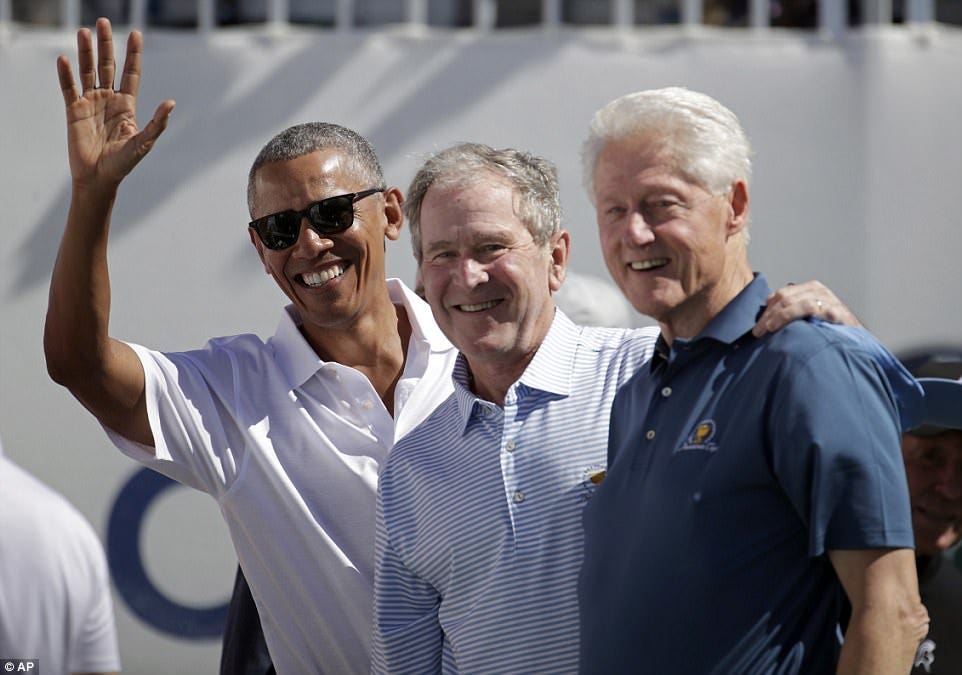
There were different problems for the establishment. Although it had prepared the Steele Dossier as what Peter Strzok would call an “insurance policy” against Trump’s possible win, it was caught flat-footed. The security state had been on top for too long; they had gotten a bit soft and complacent, and given Trump was seen as such a clown figure who was so far behind in the polls they didn’t prepare more for his possible win. There were certain macro plans concealed from the managerial overclass in D.C. that voted overwhelmingly Democrat (90.86% for Hillary and 4.09% for Trump) pertaining to Agenda 2030 and beyond to dramatically lower the quality of life for those living in the West - how would these plans be affected by a bombastic populist in the White House? What if Trump was effective in pursuing his agenda?
Worse than stymying the globalist proactive agenda, though, there were very significant defensive concerns as well: the FBI had been spying on Trump’s entire campaign using the NSA search databases, and before that the spying apparatus had been weaponized by Obama and Eric Holder after Obama’s 2012 election win. The intensity and depth of the spying made Watergate look like a walk in the park. If Trump’s administration somehow managed to prove criminality on this front, it could not only set back the globalist plan but ran an unknown risk of dismantling it entirely. On top of that, as an outsider without blackmail hanging over his head like for every officially approved politician Trump threatened the sinecures of the Washington establishment; the unelected civil service sucked down massive taxpayer funds and benefits while doing very little actually work, and if he managed to figure out the labyrinth D.C. system it could be a threat to their livelihoods.
It was unacceptable. Trump had to be stopped; his agenda, his personnel, his vision. Eradicated. Smart, ambitious people had to become fearful that if they worked with Trump the media would brand them the Devil, their careers would be destroyed and they would run the risk of imprisonment. David Plouffe, Obama’s 2008 campaign manager, summed up the sentiment: "It is not enough to simply beat Trump. He must be destroyed thoroughly. His kind must not rise again." “His kind” meant non-controlled populists from outside the system. They would do whatever it took: twist and break any law, turn the media’s hysteria up to maximum for years to rile up the general population, especially women and non-whites, and engage in lawfare practices and smears. As political theorist Carl Schmitt famously said, “Sovereign is he who decides on the exception.” A lot of exceptions were about to be made - but, as we will see, at a significant cost (whether intentional or unintentional).
The basics should be mentioned. There are three branches of government which are meant to serve as checks and balances on each other: the Executive branch headed by the President (in charge of the Department of Justice, the FBI and other government departments, along with serving as the Commander in Chief of the Armed Forces), the Legislative branch (Senate and House), and the Judicial branch. Both the Legislative and Judicial branches were utterly hostile to Trump, and as we will see he was unable to gain control over the Executive branch which initiated a slow-moving coup attempt against him through the DOJ and FBI.
There are three intertwined topics discussed herein: (1) the establishment’s attempts to stymie Trump from accomplishing anything (via the counter-intelligence operation, lawfare, and extreme media hysteria); (2) Trump’s attempts at effectuating policy changes, both via executive action and in his interactions with the House and Senate; and (3) Trump’s personnel choices. I considered offering a simple chronological timeline herein, but because of the complexities of the issues separating it by category makes for a better read.
Let’s continue.
The Counter-intelligence operation
The Washington establishment attempted to paralyze the Trump administration from the get-go using a counter-intelligence investigation into Trump himself. These attempts would lead to the appointment of a Special Counsel who would prevent Trump from uncovering prior wrongdoing under the shield of “active investigations” (because if Trump declassified information subject to that investigation it would be branded as obstruction of justice and result in impeachment and criminal charges) and to put him on the defensive so he would waste time and energy, also hurting his ability to fire unelected civil service enemies or to advance his agenda.
The counter-intelligence operation was officially opened on July 31, 2016. The FBI used the Clinton-funded Steele Dossier (through Fusion GPS intermediary, working ironically with Russians like Igor Danchenko) as a significant part of its basis for opening its counter-intelligence operation against Carter Page, a low level Trump staffer and FBI informant (“operational contact”) in order to “legally” spy on the Trump campaign. Why did it matter that the FBI spied on Page? Because the FBI could legally spy on anyone within two-steps of a counter-intelligence target, i.e. any of Carter Page’s contacts and any of the contacts of his contacts. That meant anyone in the campaign. The Nunes memo in 2018 corroborated these allegations.
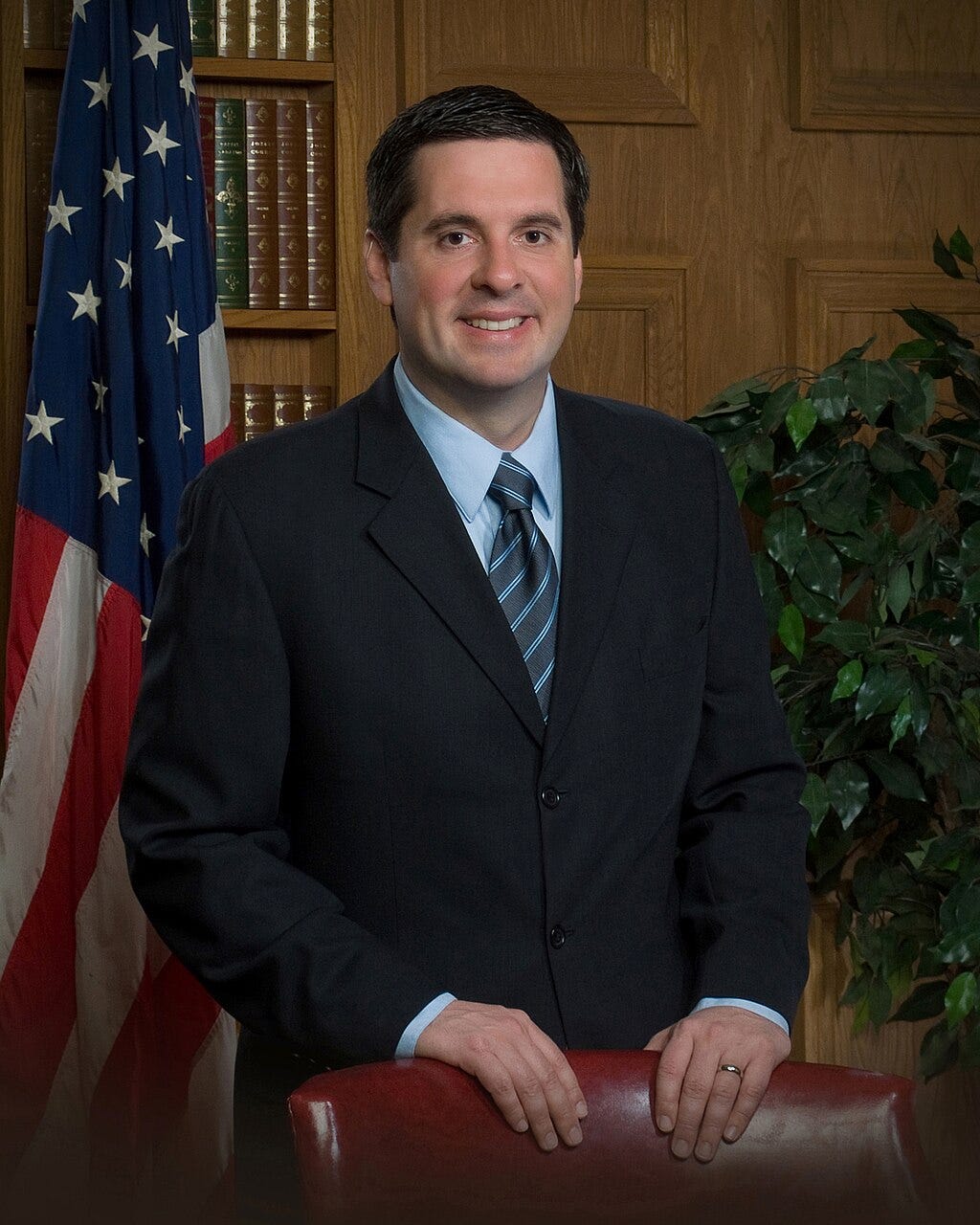
Additionally intelligence agent Stefan Halper was used to claim on September 19, 2016 that another very low level Trump staffer George Papadopoulos was a Russian spy, enabling the first FISA FBI warrant. James Comey did not inform congressional oversight (the “Gang of Eight”) of this counter-intelligence operation against Trump despite being legally required to do so because of its inherently fraudulent, criminal nature and when called out on it in March 2017 by Elise Stefanik he blamed one of his subordinates, Bill Priestap. You can see how flat footed he is caught with the line of questioning in the first three minutes of this video:
To be clear, this wasn’t the start of FBI spying on Trump or his campaign, which started as soon as he began running. Spying in this context means use of the NSA search databases which suck up all electronic data and which has everyone’s phone, internet, and email records, along with access to your various cameras and microphones via Total Information Awareness. The FBI had access to this database which they routinely abuse, and they even installed a terminal within the D.C. office of Perkins Coie, the law firm Hillary used, to make the process even easier and to create a legal privilege shield. A declassified FISA report stated that the FBI ran 3.1 million illegal FISA searches on American citizens in 2017 alone, compared to 7,500 combined searches by the NSA and CIA in the same year. In 2023 the DOJ Inspector General revealed that more than 10,000 federal employees have access to the NSA database for surveillance inquiries, more than 3.4 million search queries were ran between 12/1/2020 and 11/30/2021, and approximately 30% were outside the rules and regulations that govern warrantless search, showing the pattern of illegal governmental behavior had only expanded - but keep in mind that the epicenter of the criminal activity is the National Security Division within the DOJ and it is exempt from any Inspector General oversight. Anyway, the FBI can as of 2020 look at your web browsing history, emails, anything you have ever typed on your phone or computer and any audio you have made in the vicinity of your digital devices legally without a warrant. Then they use parallel construction to prosecute, i.e. constructing a legal basis not based upon the spying, a strategy used for a long time now. See also the Room 641A controversy, a telecom interception facility operated by AT&T for the NSA as part of its warrantless surveillance program as far back as 2003 and a facility that is likely copied throughout the country. This setup, i.e. legalized ubiquitous spying by the intelligence apparatus combined with woke AI and CBDCs, will eventually form the basis of assigning Chinese-style social credit scores to everyone in the country, cutting out dissidents from the system entirely and stealing their wealth.
Anyway the head of the NSA, Michael Rogers, was aware of the spying on the Trump transition team and went to go meet with them without approval from higher ups on November 17, 2016. He was not part of the Obama-team criminal enterprise and because of this the criminals wanted him removed from his post as reported by the Washington Post the very next day (falsely claiming it was a recommendation from October). It’s likely he informed the transition team that there was an improper FISA warrant focused on a computer server in Trump Tower suspected of links to Russian banks (and which found nothing, but the spying continued), and as a result of informing them the transition team immediately switched out of Trump Tower.
The goal of the FBI running this operation, later dubbed “Spygate”, was to initiate what became the Trump-Russian collusion scam. By claiming Trump was an agent of or working in direct collusion with Russia he would not be able to implement his agenda with that cloud hanging over him, while giving Republican “decepticons” in Congress, led by Mitch McConnell and Paul Ryan, an excuse not to cooperate with him on his agenda.
The leaked texts by FBI agents Peter Strzok and Lisa Page showed the typical elite perspective: “I want to believe the path you threw out for consideration in Andy [McCabe]’s office that there’s no way he gets elected – but I’m afraid we can’t take that risk. It’s like an insurance policy in the unlikely event you die before you’re 40” and, in one particular message when Page asked if Trump would ever become president, Strzok reportedly replied, “No. No he won't. We'll stop it.” Strzok was the #2 counter-intelligence officer and he stated “The [Obama] White House is running this”. There was a cover story that Strzok and Page were having an affair to explain their 50,000 text messages over the course of a year - most of which have not been released and were permanently wiped, and most of the limited released texts were redacted - but that was likely a lie and their communications were simply about undermining and overthrowing Trump. Both Strzok and Page were married and remained married despite the alleged “cheating”. Lying constantly to the public for ulterior motives was and remains par for the course; why would it be any different here? Strzok and Page were later fired after these text messages came out and Strzok gave incredibly smug and strange Congressional testimony. Look at his movements and physiognomy to get an understanding of this kind of individual:
Trump fired FBI head James Comey, who gave critical support for this operation, on May 9, 2017 acting on the recommendation of Attorney General Jeff Sessions and Deputy Attorney General Rod Rosenstein for a series of insubordinate actions.1 This wasn’t really a problem for the team acting under Comey as acting FBI Director Andrew McCabe was fully onboard with the agenda of Spygate. Indeed, in some ways it was a good thing as it could be used as the predicate to paralyze Trump’s administration through the appointment of a Special Counsel; with National Security Advisor Mike Flynn out of the way and globalists who replaced him installed in the NSC (discussed in the personnel section below) there were no expected problems from that angle. A Special Counsel had to be appointed by the head of the Department of Justice, though, and Attorney General Jeff Sessions was perceived as a Trump loyalist (52-47 Senate confirmation vote, showing he wasn’t very well liked by the establishment despite decades as a Senator), while his deputy Rod Rosenstein would do what he was told (sworn in on a 94-6 Senate vote, showing his globalist loyalties). It’s curious why Sessions picked Rosenstein as his deputy; perhaps he had to in order to get Senate approval.
Department of Justice officials came to Sessions and told him that he had a conflict of interest as an early Trump supporter and because of two incidental, forgettable interactions with the Ambassador from Russia which he had forgotten about when asked about it at his confirmation hearing. He was advised to recuse himself from any investigation into Trump by the Department of Justice. Meanwhile another point of leverage was pursued: in March 2017, Senators asked the FBI to conduct a criminal perjury investigation into Sessions based on these two brief, forgettable interactions. Deputy Director Andrew McCabe assigned FBI agents to investigate. (McCabe was later fired for lying under oath with a mountain of evidence about leaking spun narratives damaging to Trump. Because of the sympathy in D.C. for his criminal actions, his firing was later reversed and his legal fees paid for by the government.)
Sessions acquiesced to the demands of the DOJ officials and recused himself from their investigation into Trump’s Russia connections. If he hadn’t have done this the perjury investigation would have been used to force him out; one way or another he would have been made to recuse. Trump was furious, rightly considering this an act of deep betrayal by Sessions; he would never have appointed a man as head of the Department of Justice if he had known he would be so willing to roll over for one’s enemies. Sessions would later lose his attempt to run again for Senate because of his lack of support from the Republican base which turned on him due to his betrayal.
On May 17, 2017 Rod Rosenstein appointed Robert Mueller as Special Counsel to investigate links between the Trump administration and Russia. Mueller was just a figurehead, though, and the same operatives in charge of the counter-intelligence operation against Trump continued their work under Mueller. To a significant extent the process was the punishment as the investigation snared a large number of Trump allies who had to spend extreme amounts of time and money trying to defend themselves.
The investigation would go on until March 2019 when newly appointed Attorney General and establishment lackey William Barr would wrap it up, prepared to move on to the next step of the establishment narrative. This will be discussed further in the personnel section, but keep in mind that any cabinet post must be approved by the Senate and roughly a third of the Republican Senate is directly controlled by arch-globalist Mitch McConnell, while most of the others are milquetoast. Therefore the only confirmable personnel would be disloyal globalists. Barr would prevent sunlight from being cast on undesirable establishment activities, fail to prosecute criminal misdeeds and work to undermine Trump at key opportune moments such as his total unwillingness to investigate 2020 election fraud.
Mueller ultimately found no actionable charges against Trump and he came across as a doddering, forgetful fool in his testimony to Congress, but his objective had been accomplished: to paralyze the Trump administration and run out the clock on the 115th heavily Republican majority Congress - the newly installed 116th Congress had a Democrat House and only a razor-thin Republican Senate - and prevent sunlight being shone on the FBI’s extreme criminal activity by hiding it under the guise of an “active investigation.” Later on in 2022 the FBI would raid Mar-a-lago to get back the physical copies of the documents that proved FBI/DOJ criminality from Trump, which he had held on to but was unable to release due to the “active investigation”, a motive that was never explained to the clueless public.
Note that more than two dozen phones belonging to members of Mueller’s team were wiped clean of data before the Justice Department’s inspector general could review them. Andrew Weismann, a hateful and deranged top prosecutor on Mueller’s team, “accidentally wiped” his cell phone, causing the data to be lost. The cell phone of FBI lawyer Lisa Page was misplaced by the special counsel’s office. When it was eventually obtained by the DOJ inspector general the phone had been restored to its factory settings, wiped of all data. The phone of FBI agent Peter Strzok was also obtained by the inspector general’s office which found “no substantive texts, notes or reminders” on it. The DOJ Inspector General Michael Horowitz would go on to whitewash the illegal Crossfire Hurricane investigation by claiming that their actions were negligent and not based on "political bias or improper motivation influenced".
The Democrat-controlled House in 2019 ensured that Trump would not be able to pass meaningful legislation and hobbled him with two House initiated impeachment votes. The first one was for looking to investigate Biden’s publicly stated corruption within Ukraine: he bragged about forcing Ukraine to fire its anti-corruption prosecutor or lose $1 billion dollars of aid ("If the prosecutor's not fired you're not getting the money [$1 billion]. Well son of a bitch, he got fired, and they put in place someone who was solid at the time.”) Here’s the video:
An investigation into establishment corruption could have put a major dent in their longer-term plans for Ukraine. The country had undergone a color revolution by the CIA in 2014 and the establishment was preparing for a transition away from the 20-year Afghanistan war, which nimbly transitioned into the endless Ukraine/Russia war where many tens or hundreds of billions of U.S. taxpayer dollars are being funneled through Ukraine back into the hands of the transnational security elite. It would have been wholly inappropriate in their eyes to let Trump spoil the upcoming party or to reveal their activities. Many establishment Republicans were in on the charade including Mitt Romney. One may note with curiosity that liberal operative Norm Eisen drafted 10 articles of impeachment for the Democrats a full month before President Trump ever called the Ukraine President in 2018 and who personally served as special counsel litigating the Ukraine impeachment.
The second impeachment was for January 6, launched one week before his term expired and which will be discussed further in Part 3.
Utilizing the House and Senate to undermine the populist agenda
As mentioned in Part 1, the expected outcome of the 2016 elections was that the Republicans would control the House and Senate by a decent margin and Hillary would win the presidency. This gridlock would ensure business-as-usual for the uniparty and both the Republicans and Democrats could use the gridlock as an excuse for why they were unable to fulfill their respective agendas. While not a top priority, the establishment preferred to maintain the illusion of a two-party system when doing so would not conflict with larger goals.
Trump’s highly unexpected victory threw a wrench into these plans. The Republicans controlled the House, the Senate, and the Presidency, so they would have no excuse for not passing their stated agenda. This was a problem because they really did not want to pass any portion of Trump’s agenda to re-negotiate trade deals, to close the southern border, to get rid of DACA or to overturn Obamacare. McConnell had played a major role in destroying the Tea Party movement by behind-the-scenes maneuvers such as backing establishment candidates and withholding funds from populist candidates, and there was no way he was going to let populists fulfill their agenda here. He controlled roughly 1/3 of the Republican senators and he would strongly prefer to work with Democrats to undermine Trump. This post analyzed the voting record of the Republican senators and which concluded they were almost universally establishment-oriented and weak. On the House side Paul Ryan despised Trump although he was willing to work with him on certain issues like tax cuts for the ultra rich (Trump endorsed Paul Ryan to try to get into his good graces; Ryan would repay him by doing everything he could to impeach him).
McConnell prevented Trump from making any recess appointments, a highly unusual move showing beyond doubt how much he despised Republican populism. Also see here for more information.
McConnell also refused to change the legislative filibuster requirements to a simple majority instead of requiring 60 votes to overcome it, ignoring Trump’s request here and here to change the rules because otherwise Congress would remain paralyzed. This specific filibuster still stands today - and gridlock is not necessarily a bad thing, requiring a significant majority for major legislation can be good, but anyone with a brain knows it will be removed by Democrats as soon as it is politically expedient. Liberals play for keeps; decepticon Republicans fiddle weakly while Rome burns.
What did the Republican-dominated Congress deliver? With Trump’s approval it passed tax cuts for the ultra rich (and refused to remove the hedge fund carried interest tax loophole despite Trump promising to do so) and passed a bipartisan First Step Act to let felons out of prison. They failed to kill the bloated mess of Obamacare which drastically increased medical insurance prices for most citizens. John McCain cast the deciding vote as he was dying of brain cancer:
When McCain died the whole political establishment turned out to his funeral: Bush, Obama, Clinton, Cheney, Gore, the whole gamut. Only Trump was excluded as a political outsider. McCain embodied among the worst of globalist values: an endless appetite for war, corruption, graft, and lies.
Congress also passed cosmetic changes to NAFTA despite Trump’s campaign for radical reform, and Trump attempted a weak bit of a trade war with China with some Congressional support and which failed. The Republican controlled Congress was unwilling to pass funds for border security by building the wall, to deal with illegal aliens, or to pass a infrastructure bill - McConnell hated anything to do with American populism and he would ally with the Democrats to prevent it from happening although, as a very seasoned and skillful politician, he made sure to enact his moves behind closed doors. Maintaining institutional credibility in the eyes of the public for the Uniparty remained a priority - although not a top priority - for McConnell.
One accomplishment was that Trump worked with the Senate to appoint three Supreme Court justices. If Hillary had won the Court could have taken an alarming far-leftist turn. Trump’s justice picks were all varying degrees of bad - Gorsuch was okay to a limited extent while Amy Cohen Barrett is a moderate-leftist except on abortion, while Brett Kavanaugh is a crying feminist type reminiscent of a more liberal Jordan Peterson even though the same liberals almost lynched him. The only two “real conservatives” on the bench are Thomas and Alito.
Trump’s personnel choices
Trump’s personnel choices were widely perceived as one of the weakest points of Trump’s administration. His picks were generally geared toward globalists either out of necessity (there were very few populists with government experience and populists were not going to be confirmed for cabinet posts in the McConnell-dominated Senate, at least not after the earliest 2017 picks when Trump arguably had a bit of a mandate), or because he thought dealing with the administrative state would somehow be like hiring and firing employees in business, or out of listening to the wrong people (such as Jared Kushner), or out of laziness and poor administrative ability. He ended up bitterly fighting with many of his personnel as they actively attempted to undermine his agenda, an extremely poor position to be in given his life-and-death battles against the active FBI and DOJ coup attempts and endless, intense media smears.
Let’s discuss Trump’s transition to the presidency and then highlight some of his especially poor personnel decisions. There will be a focus on the National Security Council position because the NSC did not need Senate confirmation; therefore, who Trump picked for that role was entirely up to him and provides helpful insight into his thought process (or lack of one) without requiring a filter of political consideration. Also note that the NSC was the only institution that could have offered a measure of protection against the FBI coup attempt “counterintelligence operation”, which is why they targeted Mike Flynn as a top priority (to be discussed).
Transition to Presidency
Chris Christie, one of Trump’s primary opponents who later endorsed him, was initially put in charge of Trump’s transition team on May 9, 2016; apparently this was a placeholder as almost no one expected Trump to actually win, although Christie treated the job seriously. By October, it was reported the transition team had grown to more than 100 staff, many of whom were policy experts brought on to compensate for a dearth of policy staff employed by the Trump campaign. The election was held on November 8, 2016 and only three days later on November 11 Christie was removed and Trump’s children along with Jared Kushner were named to the transition executive committee. On the same day, Christie's close associates Richard Bagger and Bill Palatucci were both removed by Trump from the transition team. Globalist Vice President Mike Pence was nominally put in charge of the transition and eventually the truth came out: it was Jared Kushner who had Christie fired because Christie had prosecuted Kushner’s father more than a decade prior. According to Christie:
“If a guy [Kushner’s father] hires a prostitute to seduce his brother-in-law and then videotapes it and then sends the videotape to his sister to attempt to intimidate her from testifying before a grand jury, do I really need any more justification than that?” Christie said in a recent interview with PBS. “I mean, it’s one of the most loathsome, disgusting crimes that I prosecuted when I was US attorney.”
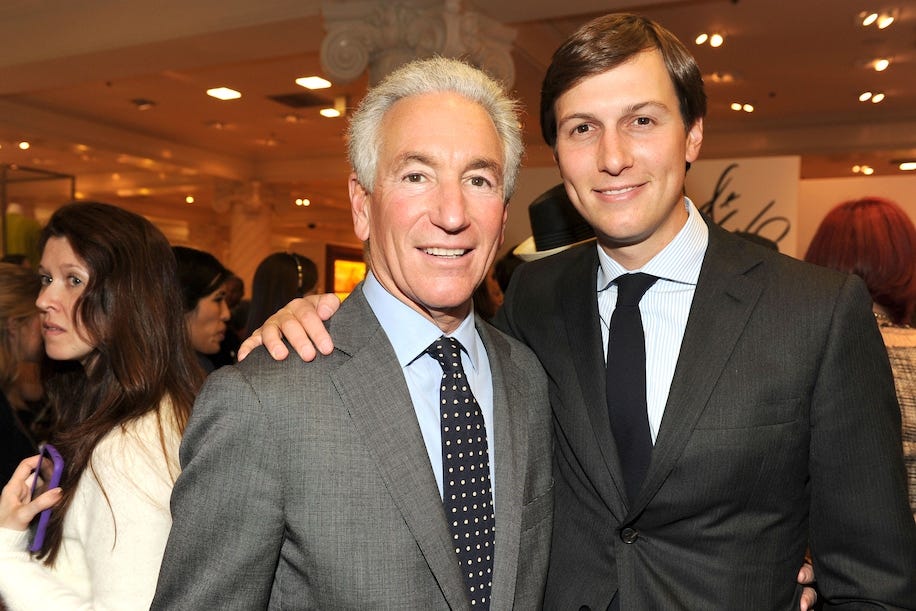
This was the first inkling that Kushner, a 36 year old nepo-baby who got into Harvard based on a multi-million dollar donation from his father, would for some unknown reason have almost total control over Trump’s decision making process. It was also a sign that Trump did not care much about displaying loyalty to those who had backed him as Christie had done.
On November 10 Trump met with Barack Obama. He looked quite uncomfortable, back hunched:
On November 22 Trump announced there would be no Hillary investigation into her private server despite his campaign pledge to "lock her up". Senior adviser Kellyanne Conway went on MSNBC's “Morning Joe” and conceded that with the campaign behind him, Trump isn't looking to prosecute Clinton. “I think when the president-elect, who’s also the head of your party, tells you before he’s even inaugurated that he doesn’t wish to pursue these charges, it sends a very strong message, tone and content” to the rest of the GOP, she said. “ … I think he’s thinking of many different things as he prepares to become the president of the United States, and things that sound like the campaign are not among them.” Be careful what you say publicly, though: just because Trump decided to “show magnanimity” does not mean that his words would be forgotten. As
argues:Here’s the part many reading this don’t want to hear: Trump did this to himself. You can’t campaign on locking up your enemies and being this great bull in a china shop-type figure, and then let your enemies run your administration instead of locking them up. You also don’t threaten to invalidate an election and encourage your supporters to take drastic action, then do nothing after the action begins. One does not fish in the Rubicon, as they say. Actions have consequences, the bolder (or more foolish) the action, the graver the consequences.
The next day Trump picked never-Trumper and globalist Nikki Haley as Ambassador to the UN. On December 8 Trump picked globalist Andy Puzder as his labor secretary (later withdrawn). On December 17 Trump appointed General Kelly, a noted globalist who was willing to serve under Hillary to head Homeland Security.
Interestingly, outgoing National Security Advisor Susan Rice wrote a memo-to-self on January 20, 2017, the day of Trump’s inauguration, in which she outlined that on January 5, 2017 FBI head James Comey and Deputy Attorney General Sally Yates told Obama, Biden and herself that Trump was subject to an active counter-intelligence operation. They were worried about new National Security Advisor Mike Flynn becoming aware of it, as he would have the operational expertise to understand what was going on and counter it. This was written as a cover-your-ass email in case the effort to overthrow Trump later collapsed. In other words, the efforts to begin the “Trump = Russian collusion” efforts began immediately after the election and with White House approval (to reference again the Peter Strzok text “The [Obama] White House is running this”) - and they had to, for the reasons outlined at the start of this essay. Their behavior was simply too corrupt and criminal to be able to back down; their only choice was further escalation.
Early presidential appointments
Trump was inaugurated on January 20 and was attended by an estimated 300,000-600,000 people. Liberals gloated that Obama commanded much greater crowd sizes, but it’s unclear if the photos showing small crowd size was taken early in the day. Also, given D.C. votes consistently 90%+ Democrat, the fact that a Democrat president would command a larger crowd size than a president that commanded 4% of the local area vote wouldn’t be surprising. Anyway, apparently many of the staff who worked on Trump’s campaign were blocked by a never-Trumper named Johnny DeStefano from attending the inauguration; DeStefano was put in charge of hiring staff in the administration and he either slow-walked or bungled the job, apparently intentionally not hiring campaign staff for positions within the administration (although, to be fair, Bannon (the gold standard for the populist wing) appeared to like him).
On the same day Trump appointed notorious globalist Gary Cohn to be his National Economic Counsel director. James Comey was not fired and remained as head of the FBI. There was no DACA repeal on Trump’s inauguration day despite his campaign promise to do so on day one. Trump had initially kicked off his campaign taking aim at DACA, vowing to “immediately terminate President Obama’s illegal executive order on immigration immediately” in his presidential announcement speech on June 16, 2015, and again during an August 31 rally in Arizona. After a year of expressing intentions to strike a deal that “will make people happy and proud,” a draft of a White House Executive Order terminating the DACA program was leaked on January 25, 2017, the same day Trump said Dreamers shouldn’t be “very worried” because he has “a big heart” in an ABC interview. He would later order an end to DACA in September, which would then get held up by the courts.
On January 22, 2017 globalist, nepotistic Jared Kushner was sworn in as Senior White House advisor, while Mike Flynn was sworn in as the National Security Advisor. Because of Flynn’s experience, knowledge, honesty and integrity, he was the top target of the establishment to take out. The FBI entrapped him claiming they just wanted a meet-and-greet, then claimed that he misled Vice President Mike Pence (who, as a deep state operative, was secretly working in tandem with the FBI) and others about the nature and content of his standard communications with Russian ambassador to the United States Sergey Kislyak. Robin Townly, a Mike Flynn ally and NSC director, was then denied high-level security clearance by the establishment and forced from the NSC; denying security clearances for Trump allies on flimsy pretexts was used to prevent many from assuming important roles. On February 13, 2017, Flynn himself was forced to resign — removing the most important impediment against the launch of the false Russiagate scam that would be used as the “insurance policy” to paralyze Trump’s administration.
Here are some other dates in the first few months of Trump’s presidency which offers a feel for his transition from populist rhetoric during the campaign to globalist governing realities. As mentioned, it’s hard to blame Trump entirely for this given the paucity of nationalist populists with experience (but then again, how much does experience ultimately matter versus loyalty to a shared vision?).
Jan 30, 2017: Reports that General Kelly "wins" and prevents anti-immigration hardliner Kris Kobach from being #2 at DHS.
Feb 7: Betsy DeVos, a never Trumper and former supporter of common core, is appointed as Secretary of Education.
Feb 16: Robert Harward, a globalist deep statist, turns down Trump's request for him to head the NSC.
Feb 20: Trump picks H.R. McMaster, also a globalist deep statist, to head the NSC.
March 14: McMaster tries to fire Ezra Cohen-Watnick from the NSC, who exposed the Susan Rice wiretapping information to Devin Nunes; Kushner blocks it by going directly to Trump.
March 15: Neocon Dina Powell is appointed as Deputy National Security Advisor.
April 5: Trump removes Steve Bannon from his NSC post.
April 6: Bannon calls Jared Kushner, who is rapidly assuming power, a "cuck" and a "globalist".
April 7: Trump attacks Assad in Syria despite a campaign pledge to have a non-interventionist foreign policy.
April 8: Reports that McMaster wants a 150,000 ground war invasion in Syria.
April 9: KT McFarland, a nationalist and Flynn ally, forced to leave the NSC. Reports that McMaster pushed her out.
April 12: Trump says Bannon is a "guy who works for me" and downplays the roll Bannon played in the election. Reports are Bannon is on the verge of being fired or quitting. He eventually leaves officially in August.
April 14: Trump officially declines to name China a currency manipulator.
April 17: Trump congratulations Erdogan on becoming essentially an Islamist dictator in Turkey.
April 22: Trump tells AP that DACA is here to stay. Pence announces that Trump will honor Obama's agreement with Australia to take thousands of high risk Muslim "refugees" that Australia had denied asylum.
April 25: Reports that Trump, at pressure of Dina Powell, McMaster and Gary Cohn, will give a massive amount of weapons to Saudi Arabia as well as civilian nuclear reactors.
April 26: Ivanka says publicly that accepting Syrian refugees “has to be part of the discussion, but that’s not going to be enough in and of itself.”
April 28: Trump’s tax plan is released. It increases government deficit an estimated $6-10 trillion over a decade, decreases taxes on the 1% (including hedge fund managers, breaking a campaign promise), and potentially increases taxes on the upper-middle class.
April 28: Trump announces "I'm a nationalist and a globalist. I'm both."
April 28: News reports that the head of Trump's media team, Helen Aguirre Ferre, is a notorious and virulent never-Trumper.
April 30: Sebastian Gorka, a former Breitbart reporter and nationalist, is out of the White House; reports that McMaster pushed him out.
May 9: James Comey is fired. Major leaker and Obama holdover/donor David Laufman remains in key position at DOJ.
May 17: Johnny DeStefano, who heads Trump staffing despite never supporting Trump publicly, continues to block pro-Trump political appointees.
May 18: Steve Mnuchin refuses to support the reinstitution of the Glass Steagall Act in his first Senate banking appearance, in effect encouraging banks to take on additional risk and offload that risk onto the public (i.e. privatizing profits and socializing losses).
May 20: Trump agrees to $350 billion weapons deal with Saudi Arabia, including civilian nuclear reactors; Jared Kushner and McMaster reportedly high-five over the deal. Kushner would later be rewarded by Saudi with a $2 billion “investment” and McMaster went on to a series of lucrative consulting, teaching and board positions.
May 23: Thousands of rejected Australian Muslim refugees begin being screened to be accepted into the U.S.
May 24: Never Trumper Virginia Boney, who has no national security experience, is revealed to be part of NSC; she has support of Lindsay Graham and John McCain.
May 27: Reports that Trump is doubling the number of refugees allowed into the US for fiscal year 2017 from the current rate of 830 per week to 1,500 per week. Brian Hook, who serves under Tillerson at State and is an avowed never-Trumper, is responsible for this.
May 30: Senate majority leader McConnell refuses to use the “nuclear option” to end the fillibuster to pass healthcare reform, tax reform, or anything else.
May 31: Reports that Trump has not ended Obama era catch-and-release policy at the border.
June 1: Time Warner CEO says Trump won't have impact on proposed AT&T merger.
June 5: Trump supporters Corey Lewandowski and David Bossie will not be joining the administration to help create a media war room despite earlier expectations.
As of June 6, none of the anti-Trump leakers involved have been fired or prosecuted (other than Reality Winner who received security clearance in February and who was not one of the principal leakers). Never Trumper Helen Aguirre Ferre remained at the head of Trump's media team.
I’m going to end the play-by-play here, but it should be sufficient to demonstrate that even when Trump had total control over certain personnel as he did with NSC selection his picks were schizophrenic and increasingly globalist. Nationalist populists like Steve Bannon were increasingly sidelined and then removed entirely.
Regarding Bannon specifically, he had a giant ego and wanted to take credit for Trump’s achievements, and he also loved stirring the pot of drama and backstabbed the administration out of anger at being sidelined on his way out by talking to establishment leftist author Michael Wolff - in other words, he seemed to be a pretty bad employee. But it’s also clear that the populist agenda was being undermined quite intensely. It’s hard to separate good from bad with him, although there was no one else who cared so passionately about actually fulfilling the agenda that Trump ran on. Look at Bannon’s whiteboard of ideas, this was a creative guy who cared:
While the media was screeching hysterically about Trump and his administration at a level of intensity not seen in modern history, the media was unable to effectively concentrate the public’s attention on more than one or two things at once. Bannon’s plan was to “flood the zone” with a thousand initiatives which potentially could have countered, at least to some extent, the power of the media. Alas, Trump ultimately went in a different direction…
That different direction was Jared Kushner, whose level of control over his father-in-law remains one of the great mysteries of the presidency. It’s possible Kushner was simply Trump’s handler, much like Kanye West’s handler was “celebrity personal trainer”, Tavistock educated, Canadian- governmental-handler Harley Pasternak who threatened to take his children away from him if he didn’t play ball. Alternatively, Trump needed a core constituency of allies and white Christians nationalists were missing from government (even nominally pro-white congressman Steve King was hounded out of office over nothing). Kushner represented the AIPAC element, so where else could he have turned for protection against the bloodthirstiness of the left?
Anyway, Trump ended up feuding with many of his cabinet and other picks. He raged (correctly) at Jeff Sessions’ for his betrayal, he picked H.R. McMaster, a globalist to lead the NSC who offered him no protection against the security state’s coup and who wanted a giant war in Syria; he picked extreme warmongering neocon John Bolton to be his National Security Advisor from 2018-2019, and who later wrote a book blasting Trump; he picked Rex Tillerson to be his Secretary of State and he and Trump got along terribly; he picked Gary Cohn to be his National Economic Counsel director and Cohn illegally stole documents off Trump’s desk and then bragged about it; deep state Mike Pence stuck in the shiv in Trump’s back on January 6 as did Dan Coats, the Director of National Intelligence from 2017-2019 when he affirmed in 2018 the false FBI narrative that Russians had interfered in the U.S. election. I don’t blame this all on Trump — again, there was close to no nationalist populists to choose from with relevant experience, and cabinet picks had to be confirmed by the establishment Senate — but he surely could have done much better than this abysmal track record which made all his other problems much worse.
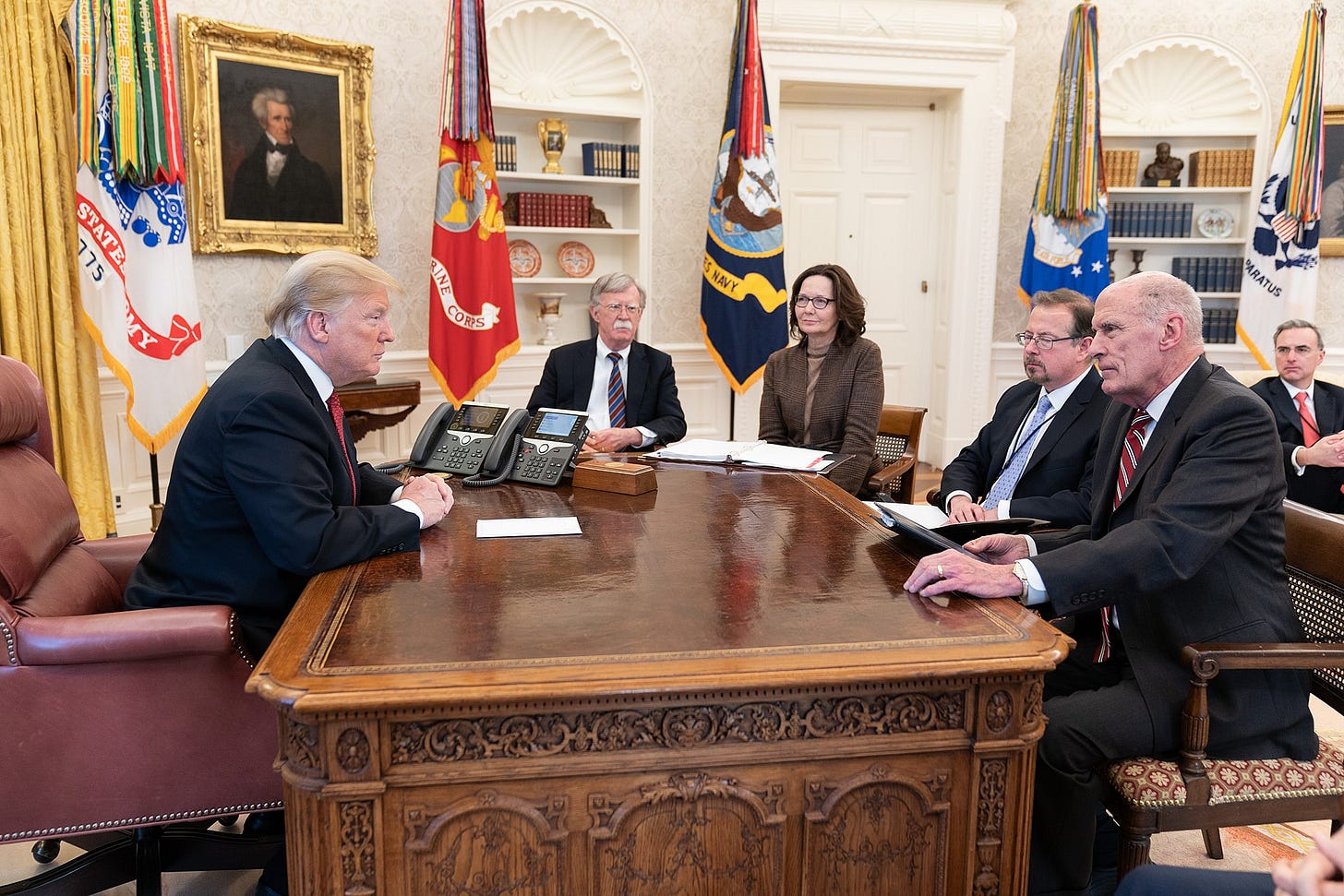
Thankfully, at least Trump kept hypocritical globalist Mitt Romney away, although he played with Romney by entertaining his plea for a cabinet position at a dinner which was famously captured on camera:
Trump executive actions and foreign policy
Trump did have some limited effect through executive actions and on foreign policy. He pulled out of the Paris accords on June 1, 2017 which would handicap America but allow China and other third world countries to pollute essentially at will. The withdraw was complete in 2020 but the Biden Administration re-joined in 2021.
Trump withdrew from the proposed Trans-Pacific Partnership in 2018, although he later flip-flopped and signaled an openness to reconsider it. The Biden administration has not rejoined it as of 2024, meaning the establishment is not now in favor of TPP.
Generally Trump’s instincts were pacifistic. Trump resisted his National Security Advisor Mcmaster’s desire for a 150,000 boots-on-the-ground invasion of Syria. Instead, he opted to bomb some empty Syrian airfields after giving Syria opportunity to evacuate them. He also tried to get North Korea to give up their nuclear weapons, an attempt that Kim Jong Un wisely resisted as it would have set up North Korea for a future CIA-sponsored color revolution.
Trump did initiate the withdrawal from the 20-year Afghanistan war by signing an agreement with the Taliban, although the implementation was delayed so that Biden could claim credit for it in 2021. Julian Assange stated eloquently that the purpose of the Afghanistan war was a “forever war” so that the transnational security elite could graft off the U.S. taxpayer indefinitely:
The U.S. initiated the Russia/Ukraine war a mere six months after the withdrawal from Afghanistan, ensuring the rape of the U.S. taxpayer under the guise of another forever war would continue (Russia initiated the start of the war but that was after the 2014 U.S. CIA color revolution overthrowing the democratically elected president and eight years of heavily arming the Ukrainians who shelled the Donbass constantly, killing over ten thousand people).
Trump pursued an executive order to end Deferred Action for Childhood Arrivals (DACA), an Obama executive order to allow a large number of illegals to stay within America — i.e. Trump merely rescinded an executive order by his predecessor — but a district court judge issued a nationwide injunction to stop the rescission and the Supreme Court affirmed the district court judge in a 5-4 decision on technical grounds in an excellent example of despicable lawfare. Chief Justice Roberts joined with the liberal justices on the decision. Biden reinstated DACA back in 2021.
Trump also tried an executive order on the “Muslim ban”, pushed by Bannon and immigration hardliner Stephen Miller and which decreased the number of refugees from certain Islamic countries into the United States. A single district court judge in the state of Hawaii, personal friends with Obama, issued a nationwide injunction against it and the Supreme Court eventually upheld the ban in a 5-4 decision (this time with weirdo Roberts joining the conservatives).

Just before the 2020 elections Trump passed an executive order to gut civil service protections, which was a critically important move given the class consciousness which has arisen among the unelected civil service in Washington D.C. and which is overwhelmingly pro-globalist and anti-populist in outlook. The order was rescinded under Biden.
A note on the media
The media was used throughout Trump’s term as a naked weapon of war against his administration. Any claims to objectivity were completely discarded.
Per the Swiss Policy Research analysis, most western media coverage is provided by one of only three news agencies: the Associated Press, Reuters and Agence France-Presse. Six companies control 90% of U.S. media due to the Telecommunications Act of 1996, and the top shareholders of Time Warner, Comcast, Disney, News Corp are Vanguard, Blackrock and Statestreet, all establishment entities. The structure of the modern world will be discussed in Part 3, but basically all establishment media was turned hard against Trump immediately after his shocking election win in order to imprint the message that Trump was the equivalent of Hitler.
The intensity of the message pushed was unlike anything seen in the modern era until equalled or exceeded by the COVID “pandemic”, which will be discussed in Part 3. The population’s acceptance of this hysteric messaging gave rise to the non-playable character (“NPC”) meme because people who had faith in the media were not able to cope with the level of intense propaganda aimed at them. They glitched out, focused exclusively and intensely on Trump and became the complete opposite of their normal selves. The spigot of intense propaganda relating to Trump was not turned off until the start of COVID when the same people who so passionately hated him (because the media told them to) shifted to worrying about a worldwide “pandemic”.
The way the media worked was as a closed circuit echo chamber. One organization would report some false propaganda and then the next organization would piggyback off of and build off it in an ever-intensifying loop. They would also use the same key words in order to help hypnotize the public. We saw above how Andrew McCabe was the originator of some of these false leaks for which he was later fired.
Here are just two examples among an uncountable number of them:
Additionally, every Trump administration figure was personalized and profiled in depth with every action and statement held aggressively under a microscope, which is a common Saul Alinksi “Rules for Radicals” tactic (who was Obama’s inspiration; Alinski incidentally dedicated his book to Lucifer).
The media also highlighted with intense hysteria the Charlottesville “Unite the Right” rally where attendees clashed with Antifa members. James Fields, who was in his car when far-leftist agitators started hitting it, pushed on the gas to flee for his life, running over an obese woman who may have died from a heart attack. Consecrating the event with blood, Fields was charged with murder and sentenced to life imprisonment.2 The media then demanded that Trump disavow everyone at the rally and crucified Trump for his quasi-unwillingness to do so (as he likely instinctively knew it was a trap). Regardless, the media would hype this event hysterically in order to try to smear Trump as a white nationalist, and there were no subsequent major gatherings of Trump supporters outside of rallies until January 6. Charlottesville, in essence, removed the right’s tentative willingness to try to organize offensively; 1/6 would remove the right’s willingness to try to organize defensively.
Meanwhile, as mentioned in Part 1, the establishment came to understand the threat of unregulated free speech on social media after Trump’s shocking win. They forced Facebook to accept extreme government censorship demands, they had Twitter (where a large number of FBI and CIA agents were embedded as moderators) ban and shadow ban a huge number of influential far-right users, they made 4chan basically unreadable with bots and FBI agents, they banned populist right Subreddits such as /r/TheDonald, they imprisoned Julian Assange and destroyed Wikileaks and many other tactics. These tactics would grow more extreme under Biden.
A note on the economy
With all of Trump’s battles with the establishment, his polling was consistently in the low 40%’s - not good but not catastrophic:
Part of the reason for this was that the stock market did well under his presidency:
Part of the reason for this was Trump consistently hammered the Federal Reserve to lower rates - he even wanted them to go negative (as lower rates equal higher asset values); instead they raised them a bit but not much until 2020:
Trump’s low approval rating was kept above catastrophic levels by low interest rates, a rising stock market and drastically increasing central bank debt and which increased regardless of president or party:
In other words, the core, fundamental problem with American finances continued to get substantially worse under the “small government” Republican party which controlled the House, the Senate, and the Presidency. In a democracy people vote to take from their children’s futures until there is nothing left and if you want to reign in government spending you will be booted from office.
Conclusions
The threat of a populist president united D.C. through class interest to oppose his presidency at every turn. Only a few at the very top knew of the bigger picture plans of the realities of Agenda 2030 and beyond; everyone else was working off either class instinct, media hysteria, or core hatred of white Middle America. Even though Trump was essentially toothless against fighting back against these hyenas, by sticking to the rule-of-law he inadvertently awakened the average person to the existence of the so-called “deep state” and uniparty based off their intense, sustained and over-the-top hostilities when they instituted their Schmittian exceptions in order to do whatever they could to “get” Trump. The existence of the deep state was unfathomable prior to Trump and would have been considered an unhinged conspiracy theory; as a result of his presidency the truth is out in the open. According to
, “My dad, a Russian/Romanian who reluctantly followed my mom to the U.S. and who I don’t think was ever happy here, used to explain his distaste for America in these terms, ‘the difference between Eastern European governments and the West is that the Eastern Euros had the decency to be honest that they were corrupt pieces of shit instead of pretending to be good guys fighting for your freedom.’” After Trump, the wool was off the eyes of a substantial portion of Americans and things would never be the same again. And it’s much more costly for a regime to rule via hard power versus via soft power, although many regimes throughout history have ruled via hard power for long periods of time.This brings us to the end of Part 2. In Part 3, we will look at the so-called COVID pandemic as well as the 2020 election and its aftermath.
Thanks for following.
Comey also kept seven CYA memos to himself containing highly classified material in the safe of his house in case he was fired or his illegal activities were eventually prosecuted; after he was fired he illegally leaked portions of those memos to the media. The issue was later dropped as part of Michael Horowitz’s cover-up. “Comey violated FBI policy and the requirements of his FBI Employment Agreement when he chose this path,” Horowitz wrote toothlessly. This memo was relevant to both the ongoing investigation into Flynn and as documentation of a potential attempt to obstruct the Flynn investigation. “Rather than continuing to safeguard such evidence, Comey unilaterally and without authorization disclosed it to all.” Comey argued to Horowitz that he felt the issue was of “incredible importance to the Nation, as a whole” and that he felt leaking the information was “something I [had] to do if I love this country.” But Horowitz responds: “Comey’s own, personal conception of what was necessary was not an appropriate basis for ignoring the policies and agreements governing the use of FBI records, especially given the other lawful and appropriate actions he could have taken to achieve his desired end.”
There is something occult about this principle; if an establishment narrative results in at least one death of a member or ally of the establishment then that narrative gains a significant boost in narrative power. We will see how they flailed about hoping to secure such a death on January 6 (discussed in part 3) by lying that multiple security officers died, although ultimately failing when only one died and from an unrelated health issue. Given Ashli Babbitt was a Trump supporter her death did not count for this purpose.





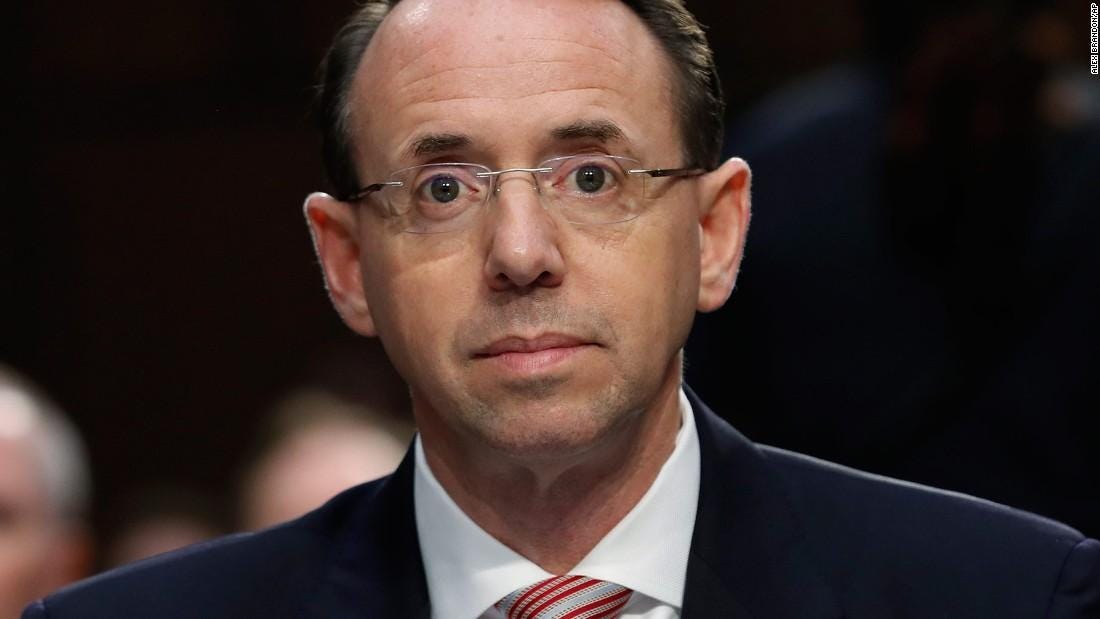
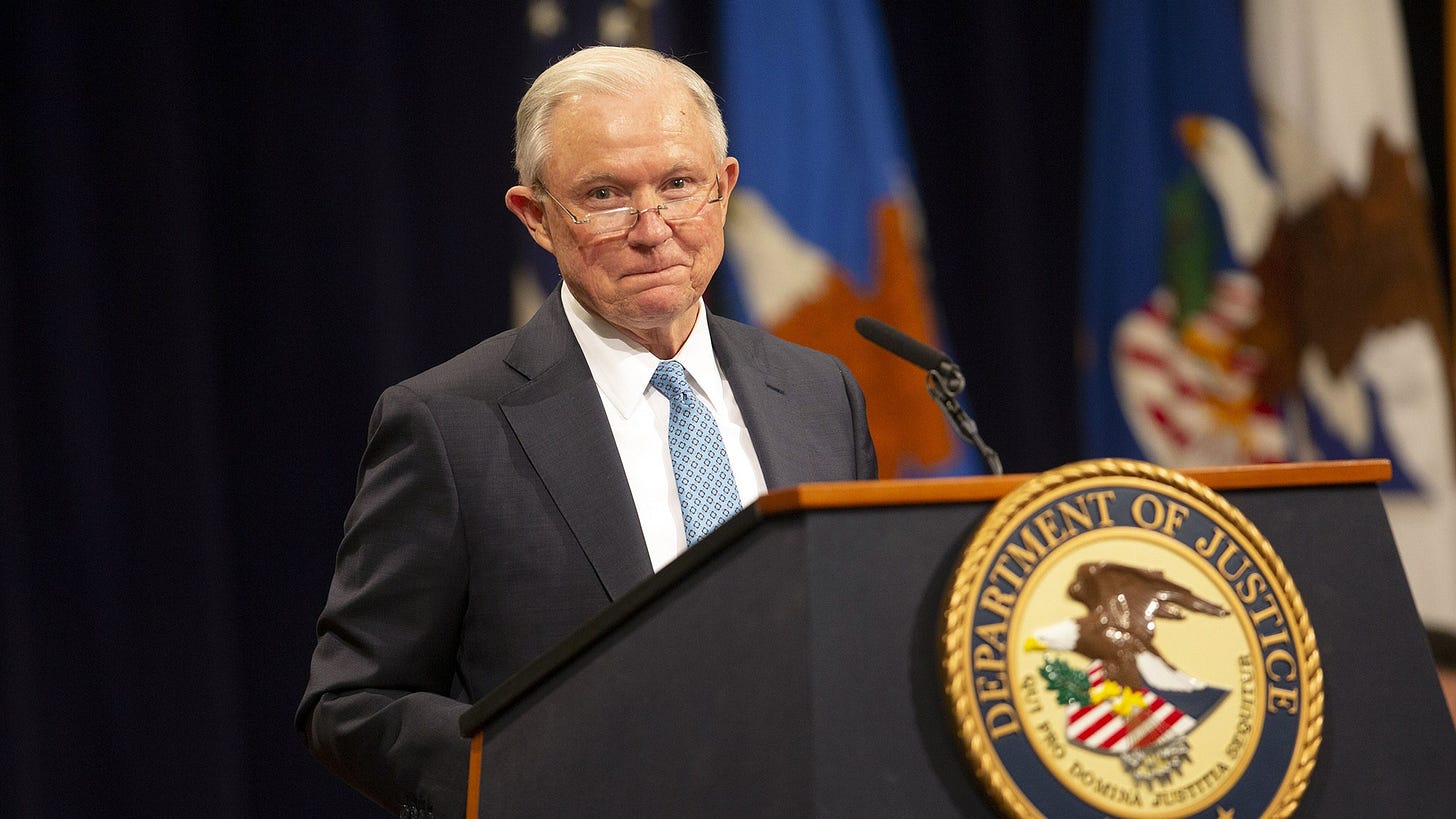
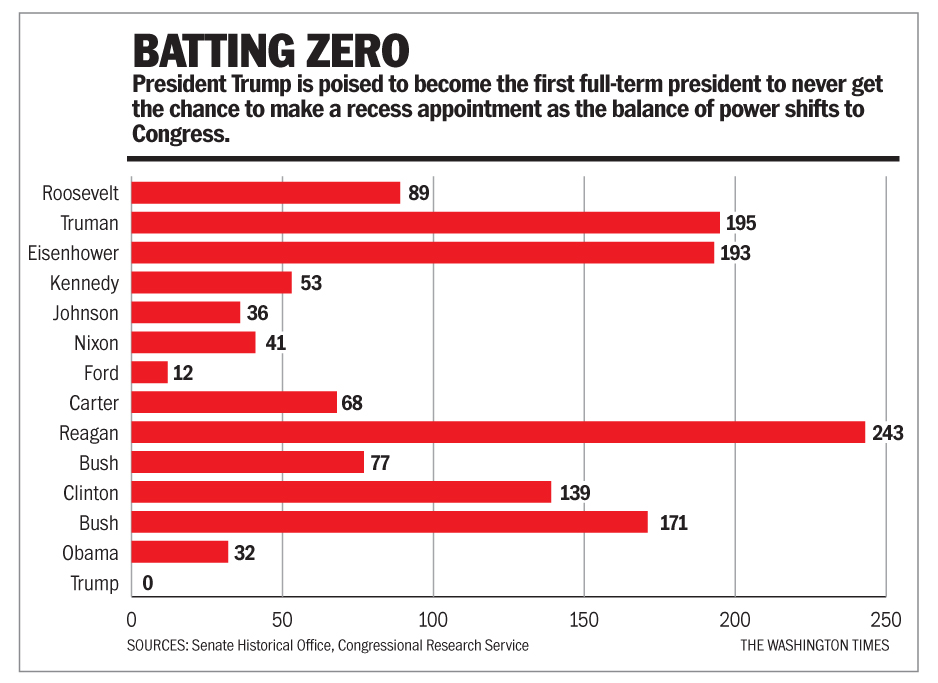
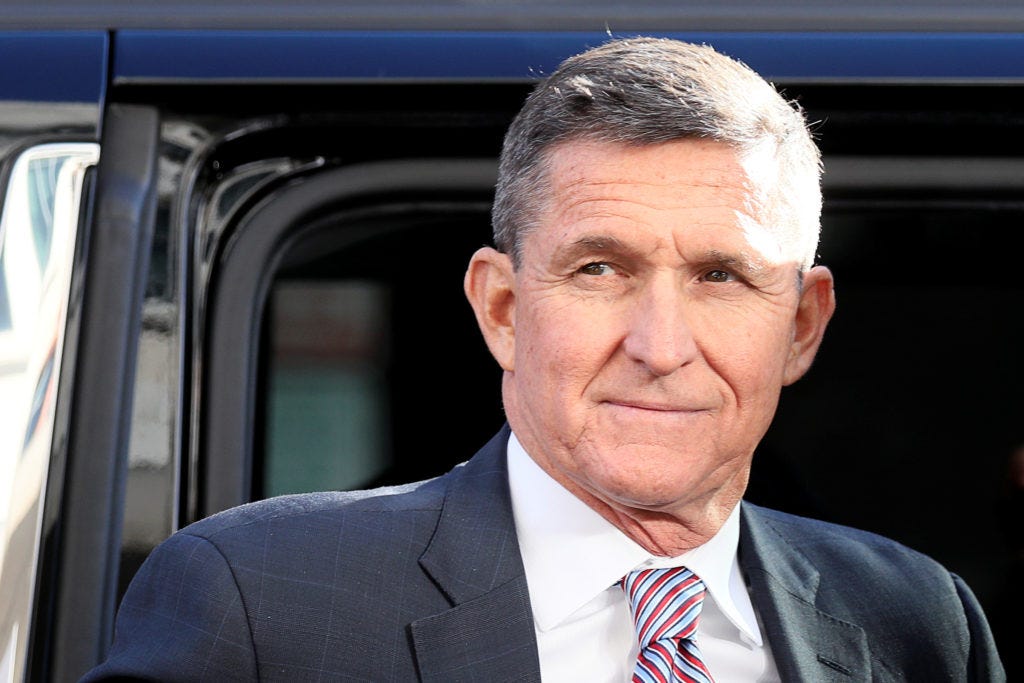
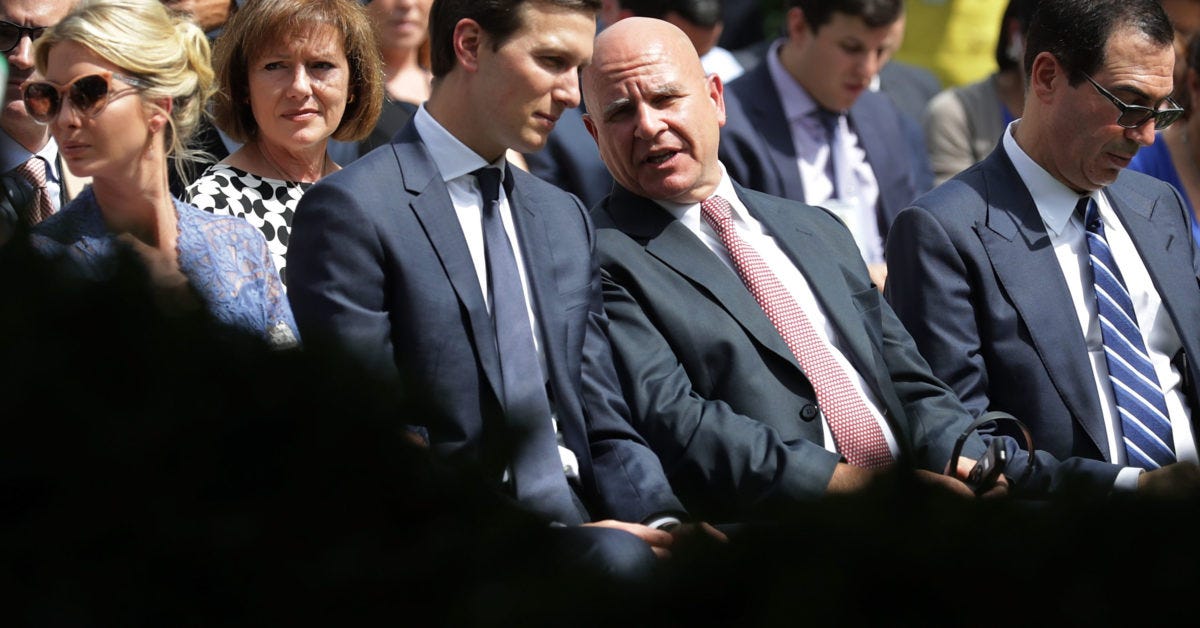
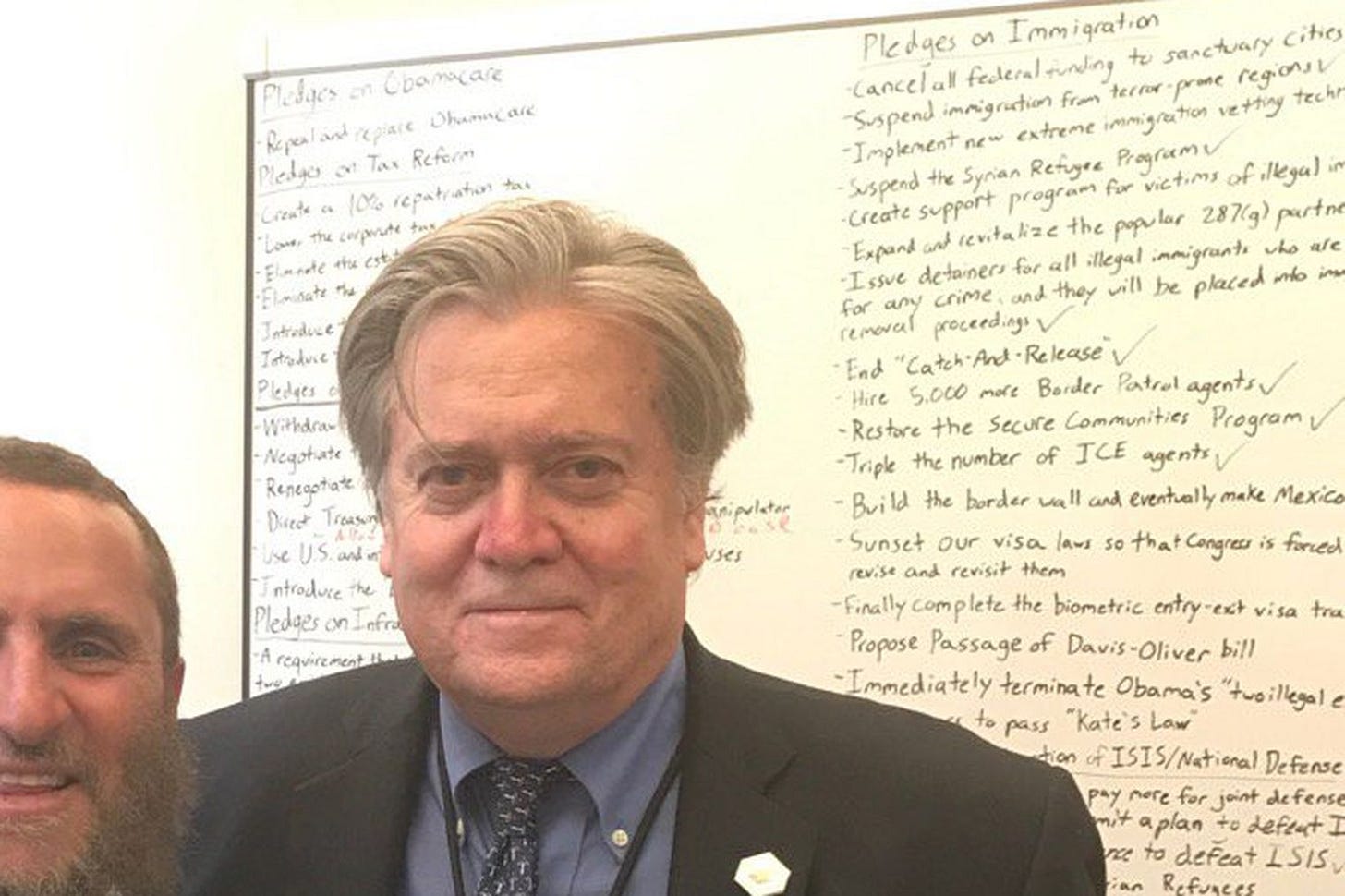
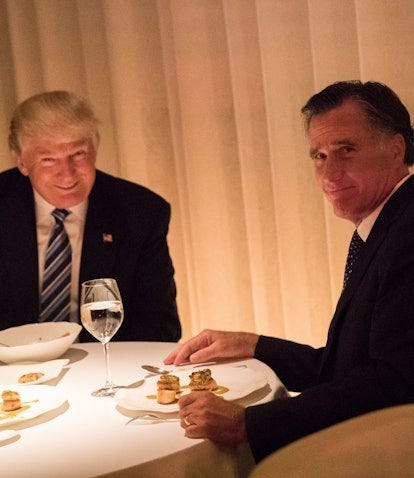
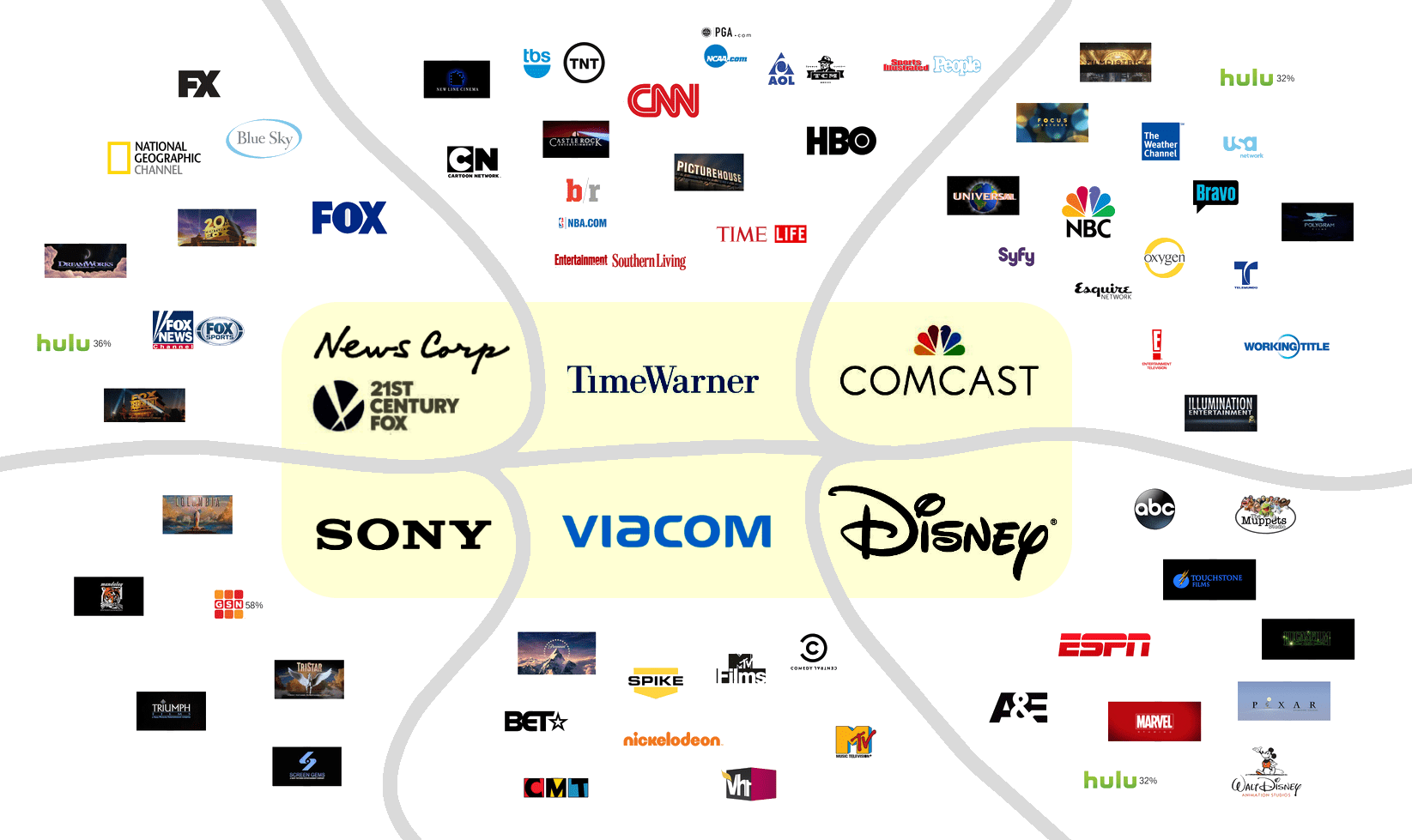





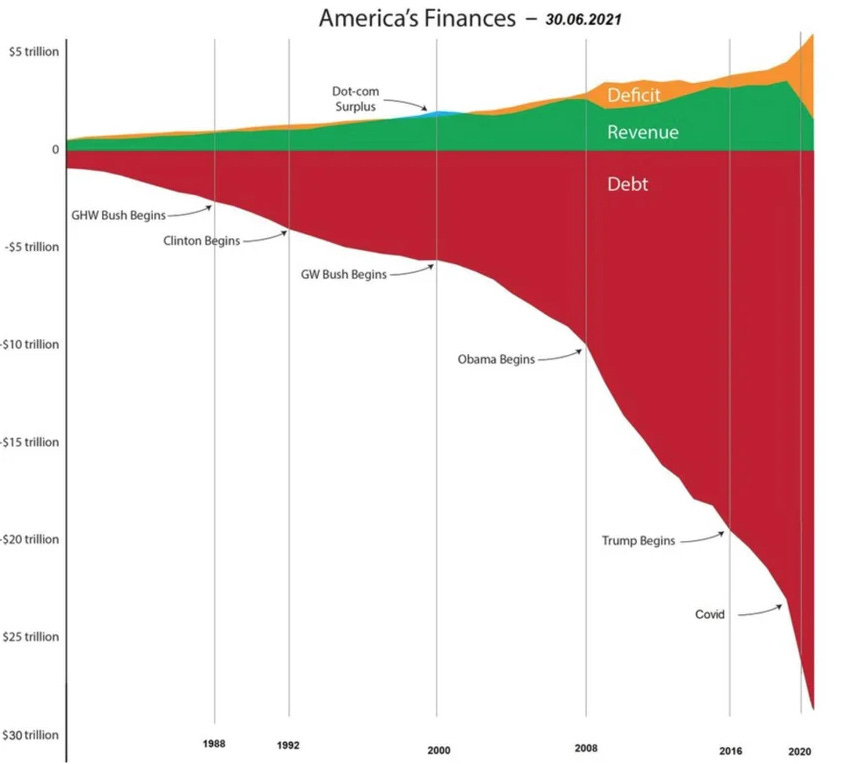
A thorough analysis of ineptness, poor decision making of Trump and the viciousness of those in the uniparty to hold on to power and push their agenda.
Like you mentioned, hate him or love him, his presidency did open up a lot of eyes to the existence of the deep state.
Time will tell if enough are awake to change course.
Reading this, I wonder if someone like DeSantis would be able to successfully watch Trump's back this assumed time around. He might be short and possess an odd accent (Floridian?) but he does seem very tenacious, clear-sighted, energetic, and effective in things political and administrative.